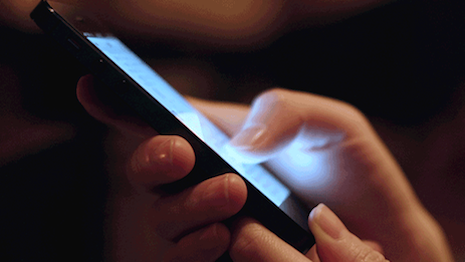By Danny Parisi for Mobile Commerce Daily
After only a few months, Yahoo is discontinuing Radar, its chatbot-like travel assistant, providing the first inkling of doubt in the otherwise promising rise of chatbots as a commercial interface.
The chatbot was launched this summer and aimed to compete with other travel-assistant programs through messaging. At the beginning of this month, Yahoo officially discontinued its support
“In the next five years, all brands will have a chatbot,” said Jeff Malmad, managing director and head of mobile and Life+ at Mindshare North America. “And to be successful, these chatbots must provide value in the form of relevant content and immediacy.
“Right now, most bots enable you to ask a question and have it answered, in the form of ‘if this, then that.’ Unfortunately, there’s also some brands that have chat bots that don’t reply immediately, which is not a good user experience.
“But as time goes on, machine learning will enable chatbots to provide more predictive, customized experiences for consumers. It’s a big opportunity for retailers in particular – a chatbot that gets to know your tastes and styles, and can make proactive recommendations about clothing you may like to wear, a product that you want for your home, etc.”
Chatbot
While messaging has taken off as a popular form of mobile interaction, and chatbots from a variety of brands have sprung up on all the major platforms, one chatbot is saying farewell.
Yahoo’s Radar is now defunct. The chatbot was introduced this summer as a way to help consumers plan trips and book flights.
Unlike most other chatbots, which are housed on popular messaging platforms such as Facebook Messenger and Viber, Radar was its own app, a fact that may have contributed to its lack of popularity.
The app would help consumers plan trips as well as suggest them restaurants and diversions in their destinations.
One of the ways Radar did this was by scanning a customer’s Yahoo email account – a requirement for use of the app – for incoming trips and try to be proactive about suggesting things before a consumers asked for it.
This also served the dual purpose of letting Yahoo gather more information about its consumers.
Over the course of its six-month existence, Yahoo had made plans to bring in more commercial options and let consumers link to and be directed to other apps on their device.
Unfortunately this never came to pass and the app is now no longer available for download. Users who already have it downloaded are shown a message informing them of its discontinuation when the app is opened, according to VentureBeat.
An important warning
Messaging, while undoubtedly popular and a powerful tool for brands, is not without its pitfalls.
So far, the main big messaging projects we have seen have met with success, such as the various brands who are using Facebook Messenger bots for mobile ordering and the introduction of iMessage apps on Apple devices (see story).
Yahoo Radar provides our first real look at the perils of messaging initiatives.
The main problem is twofold. On the one hand, chatbots are much more likely to be successful if housed in an app that people already use, such as Facebook Messenger. The idea is that consumers can have one app that does the work of apps for many different brands through chatbots.
Yahoo having its own app just for this chatbot set it back immensely.
Secondly, it required consumers to have a Yahoo email account to work, and Yahoo email simply cannot compete with other email servers such as Gmail.
Going forward, brands looking to make use of chatbots would do well to take heed of Yahoo Radar if they want their messaging projects to survive.
“One unsuccessful bot doesn’t doom the landscape,” Mr. Malmad said. “We see tremendous opportunities and growth in the chatbot space – just look at how much time people are spending on their mobile devices, particularly on messaging apps.
“For example, eMarketer projected in June that Facebook Messenger would have 105.2 million active users in the U.S. this year. In fact, I’d say that if your brand isn’t thinking about how to leverage the mobile messaging space, then as a brand manager, that’s what you should be worried about.”
from Travel and hospitality – Luxury Daily https://www.luxurydaily.com/yahoo-discontinues-radar-chatbot-providing-important-warning-to-other-brands/
via Your #1 Source to Finding Luxury & Designer Goods, Handbags & Clothes at or Below Wholesale: Click Here.


No comments:
Post a Comment